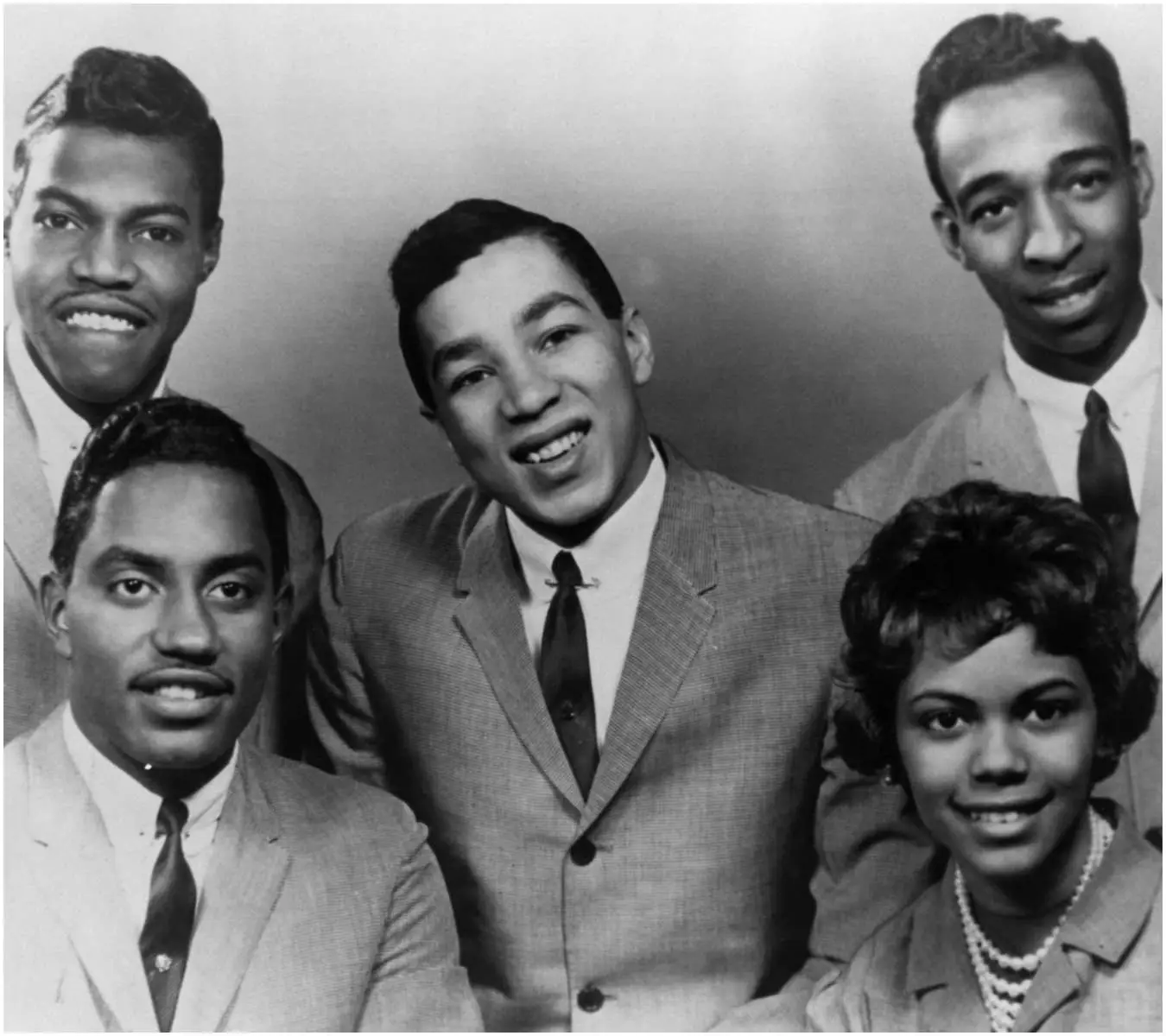Claudette Rogers Robinson: The Unsung Heroine Of Civil Rights Movement
When you dive into the history of civil rights, names like Claudette Rogers Robinson often get overshadowed by more famous figures. But let me tell you, this woman right here? She’s a game-changer. Her story is one of courage, resilience, and determination. Long before Rosa Parks became a household name, Claudette was already taking bold steps toward justice. This article will uncover her incredible journey and shed light on why she deserves recognition.
Now, if you’re like me, you might be asking yourself, “Why haven’t I heard more about Claudette Rogers Robinson?” Well, that’s exactly why we’re here today—to bring her story to the forefront. By understanding her contributions, we can truly appreciate how much she shaped the civil rights movement. So buckle up, because this is gonna be an eye-opening ride.
Before we jump into the nitty-gritty details, let’s set the stage. Imagine being a teenager in the 1950s, living in a world where segregation was the norm. That’s the reality Claudette faced, but instead of accepting it, she decided to fight back. Her actions laid the groundwork for future activists, making her a true pioneer. Now, let’s dive deeper into her remarkable life.
- Brooke Dorsay A Rising Star In The Entertainment World
- Paul Pelosi Jr The Untold Story You Need To Know
Biography of Claudette Rogers Robinson
First things first, let’s get to know Claudette Rogers Robinson a little better. Born on April 17, 1939, in Montgomery, Alabama, she grew up in a time when racial discrimination was deeply ingrained in society. But from a young age, Claudette showed signs of being someone who wouldn’t back down easily. Her bravery would soon become legendary.
Here’s a quick rundown of her early life:
| Full Name | Claudette Austin Rogers Robinson |
|---|---|
| Birth Date | April 17, 1939 |
| Place of Birth | Montgomery, Alabama |
| Education | Booker T. Washington High School |
| Known For | Being the first person to refuse giving up her seat on a bus in Montgomery |
As you can see, Claudette’s life wasn’t just about activism; it was also about education and community. She was a well-rounded individual who used her experiences to inspire others.
- Aylin Mujica The Rise Of A Colombian Powerhouse In Entertainment And Beyond
- Jason Aldean Net Worth 2024 A Deep Dive Into His Financial Empire
Her Historical Act of Courage
On March 2, 1955, Claudette made history when she refused to give up her seat on a public bus in Montgomery, Alabama. This act occurred nine months before Rosa Parks’ famous protest, yet many people don’t know about it. Let’s break down what happened that day.
While traveling home from school, Claudette found herself seated in the “colored section” of the bus. When the driver demanded she move further back to accommodate white passengers, she stood her ground. Her defiance led to her arrest, but it also sparked conversations about racial injustice across the nation.
Why Was This So Important?
At first glance, refusing to give up a seat might seem like a small act, but in the context of 1950s America, it was revolutionary. Here are some key points:
- She was only 15 years old at the time, proving that age doesn’t define bravery.
- Her arrest brought attention to the Montgomery Bus Boycott, which eventually resulted in the desegregation of public transportation.
- Claudette’s courage paved the way for others to follow suit, creating a ripple effect of change.
So yeah, this wasn’t just some random event—it was a pivotal moment in history that deserves its rightful place in the spotlight.
The Impact of Claudette’s Actions
When Claudette refused to move, she didn’t just challenge the bus driver; she challenged the entire system of segregation. Her case, State of Alabama v. Claudette Colvin, became one of four cases that eventually led to the landmark Supreme Court decision Browder v. Gayle in 1956, which declared bus segregation unconstitutional.
But the impact didn’t stop there. Claudette’s story inspired countless individuals to stand up for their rights and demand equality. It showed that even the smallest acts of resistance could lead to significant change.
How Did People React?
Reactions to Claudette’s actions were mixed. While many admired her bravery, others criticized her for being too young and too outspoken. Some even questioned whether she was the right face for the movement due to her age and personal circumstances. Despite these challenges, Claudette remained steadfast in her beliefs.
Challenges Faced by Claudette
Being a trailblazer isn’t easy, and Claudette faced numerous obstacles along the way. From facing backlash within her own community to dealing with the legal system, she encountered more than her fair share of difficulties. Let’s explore some of the challenges she overcame.
Community Backlash
Some members of the African American community felt that Claudette’s arrest could hurt the movement’s credibility. They believed that someone older and more “respectable” should represent the cause. However, Claudette refused to let these criticisms deter her. She knew that her voice mattered, regardless of what others thought.
Legal Battles
Navigating the legal system was no walk in the park for Claudette. Her case was complex and required the support of prominent civil rights leaders. Through sheer determination, she managed to see it through, ultimately contributing to a historic victory for civil rights.
Lessons We Can Learn from Claudette Rogers Robinson
Claudette’s story offers valuable lessons for all of us. Whether you’re fighting for social justice or simply trying to make a difference in your own life, there’s something to be learned from her experiences. Here are a few takeaways:
- Age is just a number when it comes to making an impact.
- Standing up for what’s right isn’t always easy, but it’s worth it.
- Even small acts of resistance can lead to big changes.
So the next time you feel like your voice doesn’t matter, remember Claudette. She proved that anyone can make a difference if they’re willing to stand up for what they believe in.
Modern-Day Relevance of Claudette’s Legacy
Fast forward to today, and Claudette’s legacy continues to resonate. Issues of racial inequality and social justice remain pressing concerns, and her story serves as a reminder of the power of activism. By learning about her life and contributions, we can draw inspiration to keep pushing forward.
Connecting the Past with the Present
While much progress has been made since Claudette’s time, there’s still work to be done. Modern-day activists can look to her example as a source of strength and guidance. Her unwavering commitment to justice reminds us that change is possible, even in the face of adversity.
How You Can Honor Claudette’s Memory
Want to pay tribute to Claudette Rogers Robinson? There are plenty of ways to honor her memory and continue the work she started. Here are a few ideas:
- Learn more about the civil rights movement and its key figures.
- Support organizations fighting for racial equality and social justice.
- Speak out against injustice whenever you see it happening.
By taking these steps, you can ensure that Claudette’s legacy lives on for generations to come.
Conclusion
In conclusion, Claudette Rogers Robinson is a name that deserves to be remembered. Her act of defiance on that Montgomery bus sparked a movement that changed the course of history. Through her courage and determination, she showed us all that standing up for what’s right is never a waste of time.
So here’s what I want you to do: Share this article with someone who might not know about Claudette. Let’s spread her story far and wide so that more people can learn from her incredible journey. Together, we can honor her memory and continue the fight for justice and equality.
Table of Contents
- Biography of Claudette Rogers Robinson
- Her Historical Act of Courage
- The Impact of Claudette’s Actions
- Challenges Faced by Claudette
- Community Backlash
- Legal Battles
- Lessons We Can Learn from Claudette Rogers Robinson
- Modern-Day Relevance of Claudette’s Legacy
- Connecting the Past with the Present
- How You Can Honor Claudette’s Memory
- Conclusion
Article Recommendations
- Adam Curry The Man Who Shaped The Podcasting Revolution
- Hugh Hendry The Maverick Investor Redefining Financial Wisdom



Detail Author:
- Name : Karelle Shields
- Username : dayton.wisoky
- Email : lawson41@yahoo.com
- Birthdate : 1990-01-22
- Address : 131 Haag Forest Romanfurt, IL 43073
- Phone : 1-458-458-6040
- Company : Kilback-Jerde
- Job : Industrial Equipment Maintenance
- Bio : Dolorem voluptatem nam vero. Dolor molestiae earum saepe sequi animi est aut pariatur. Quod distinctio ut neque omnis illum nam.
Socials
linkedin:
- url : https://linkedin.com/in/carolanne_buckridge
- username : carolanne_buckridge
- bio : Est nam dolor quo omnis a qui.
- followers : 594
- following : 704
twitter:
- url : https://twitter.com/buckridgec
- username : buckridgec
- bio : Omnis est porro dolores aliquid. Autem ex minima optio ipsum.
- followers : 3840
- following : 1817
tiktok:
- url : https://tiktok.com/@carolanne_dev
- username : carolanne_dev
- bio : Vel doloremque enim qui impedit.
- followers : 6235
- following : 2366
instagram:
- url : https://instagram.com/carolanne_buckridge
- username : carolanne_buckridge
- bio : Occaecati dolor voluptatem voluptatem totam. Id doloremque labore culpa.
- followers : 3653
- following : 471
facebook:
- url : https://facebook.com/buckridgec
- username : buckridgec
- bio : Ullam autem provident quo reprehenderit.
- followers : 2212
- following : 1704